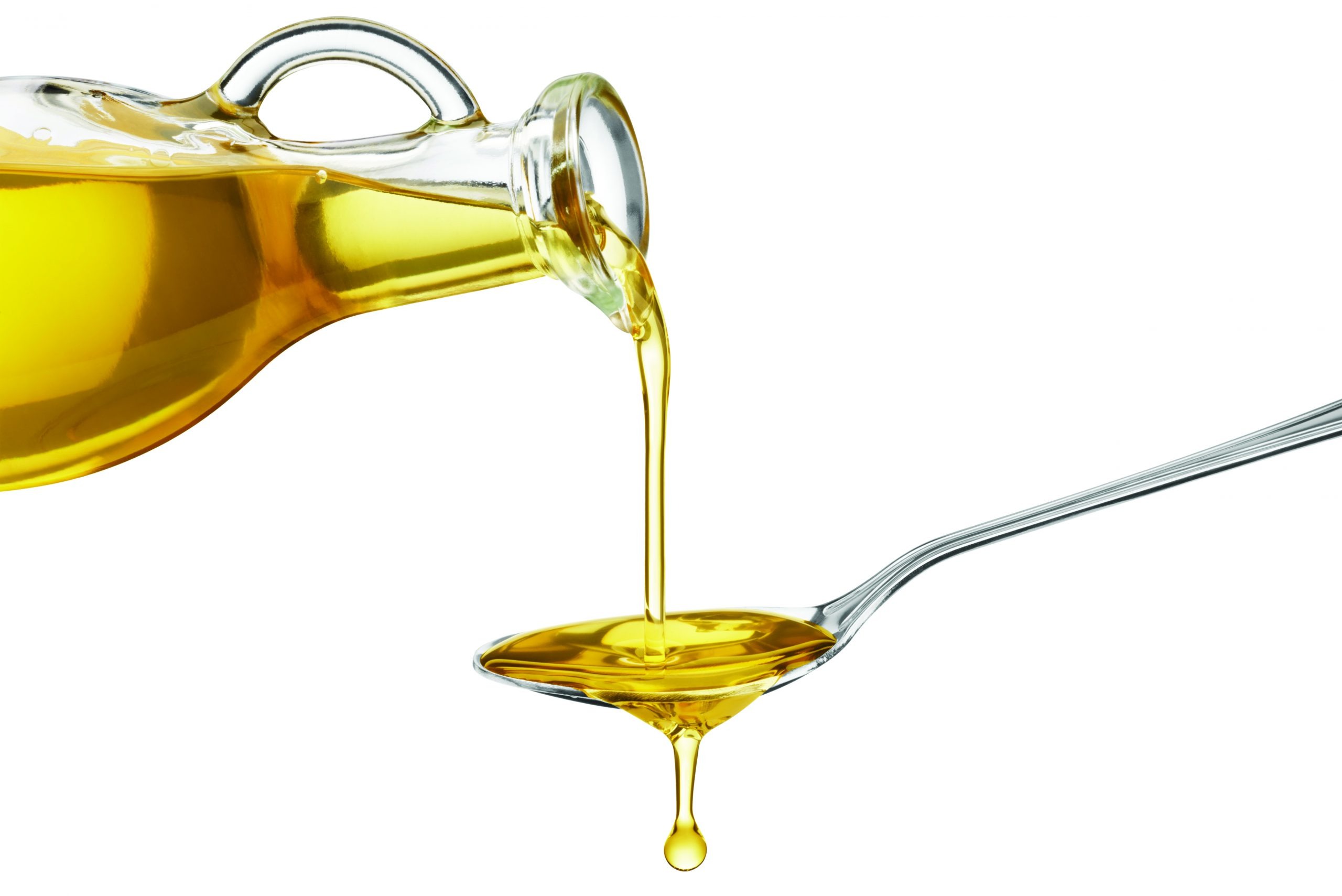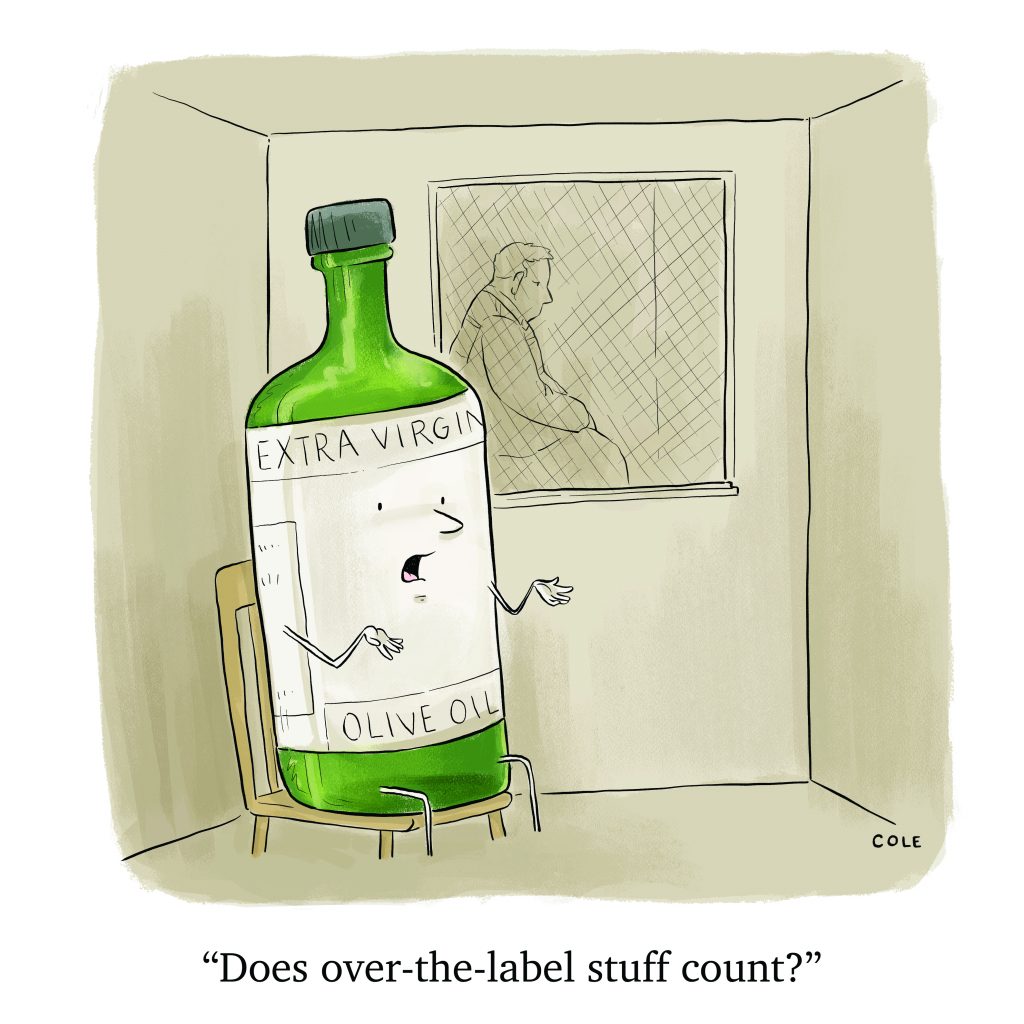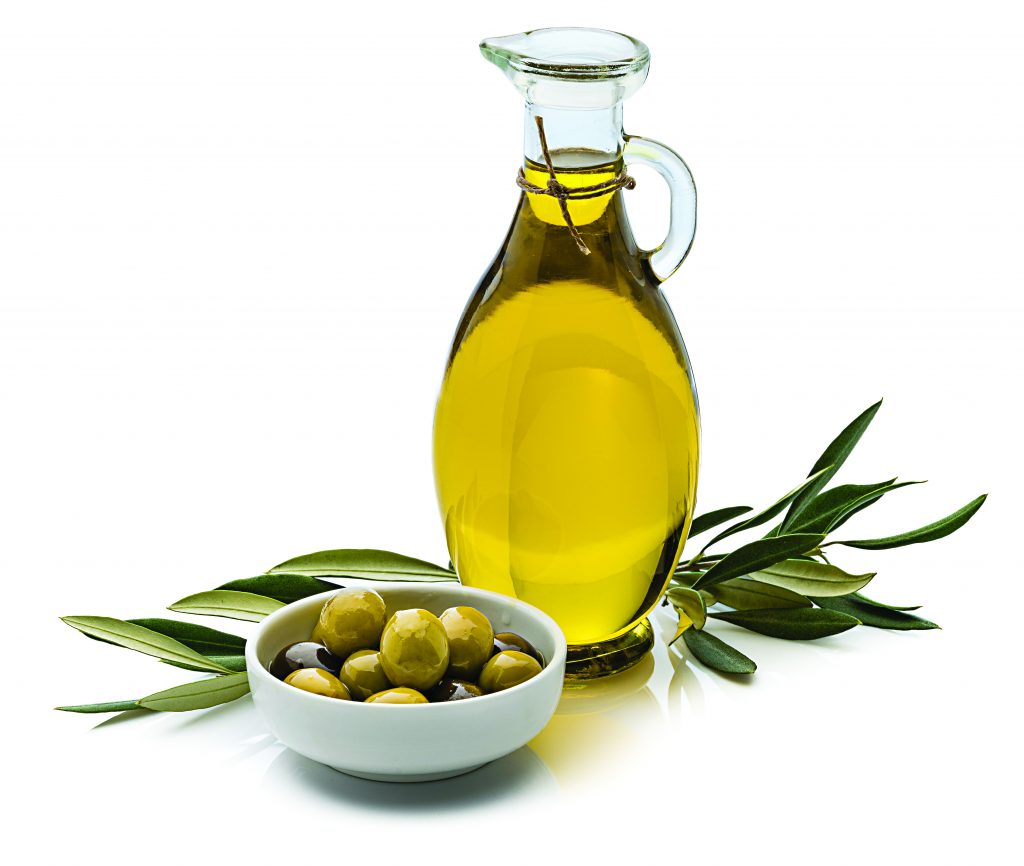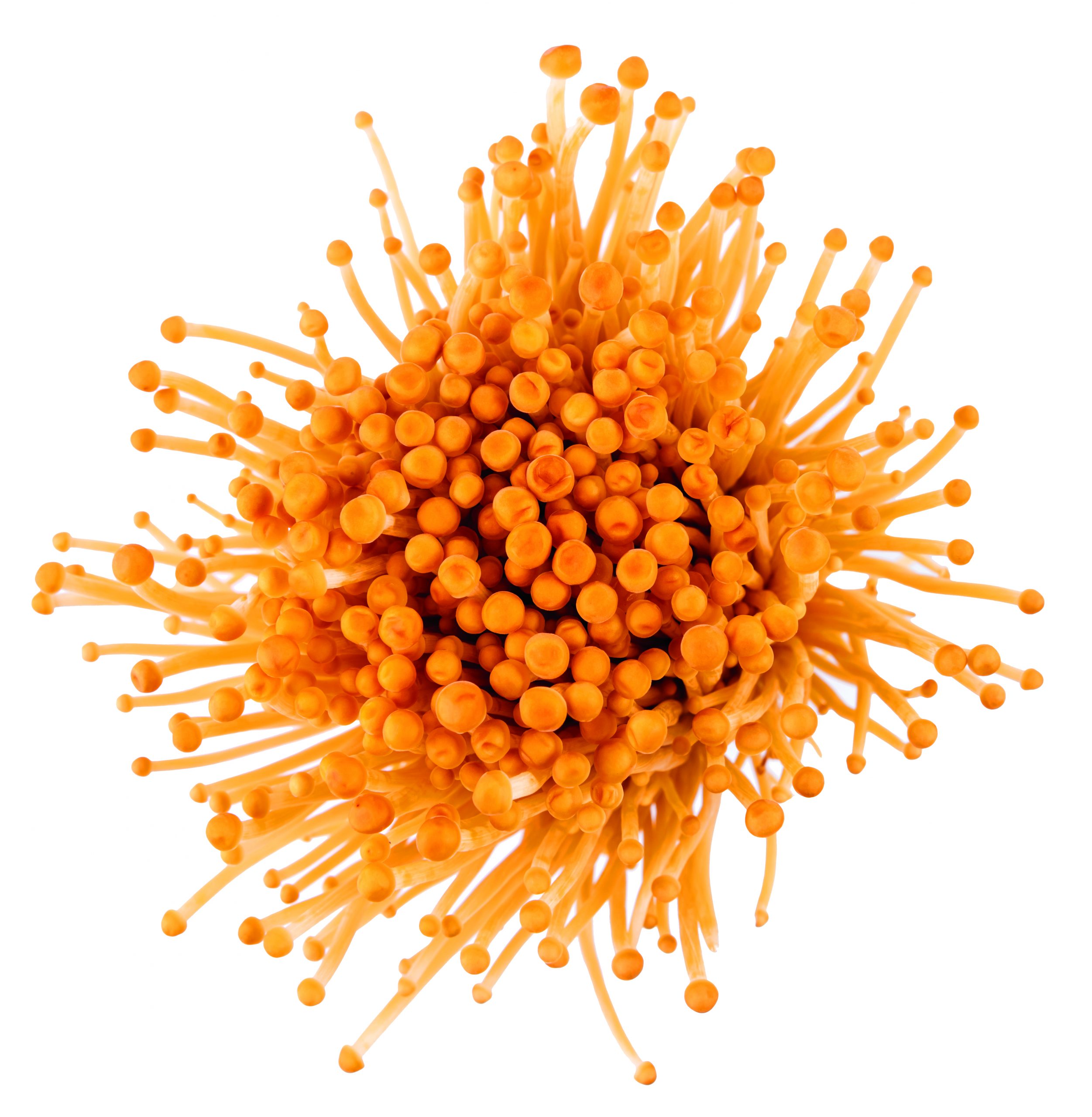This Superfood is Making Headlines
Just a gulp of extra virgin olive oil every morning can bring incredible health benefits. But watch out for fake substitutes.

Extra virgin olive oil is having its moment. Post-doctoral fellows are documenting the health benefits, videographers are filling social media with testimonials and Jennifer Lopez swears by it for skin care.
Beauty and notoriety aside, science tells us swallowing a tablespoon of extra virgin olive oil (EVOO) once a day can drastically reduce the risk of cancer, strokes, obesity, Alzheimer’s, rheumatoid arthritis, Type 2 diabetes, stomach ulcers and heart disease.
“Highest olive oil consumption was associated with 31% lower likelihood of any cancer,” says a study published by the Public Library of Science (PLOS).
Combining data from a varied range of studies, the authors of the PLOS paper note that EVOO reduces “pooled relative risk” by 33% for breast cancer, 23% for gastrointestinal cancer, 26% for aerodigestive tract cancers and 54% for urinary tract cancer.
So, daily doses of EVOO could have profound significance. This year, 1,958,310 Americans will be diagnosed with cancer, and 609,820 will die from it, The American Cancer Society projects.
But aside from sparing Americans the ravages of cancer, a daily tablespoon of EVOO makes them 28% less likely to die from dementia, the MedicalNewsToday website says.
That means a lot. Dementia’s most common form, Alzheimer’s disease, plagues an estimated 6.7 million Americans over the age of 65, according to the Alzheimer’s Association. More than 134,000 died of Alzheimer’s in the U.S. in 2020, the Centers for Disease Control reports.
In addition to fighting specific diseases, consuming EVOO simply increases longevity, says a communique from Harvard Medical School. Test subjects who replaced butter, margarine or mayonnaise with EVOO had a death rate 34% lower than those who didn’t substitute it for those fats, the Harvard report notes.
Besides postponing death, EVOO can make life better right here and now. Downing four or five spoonfuls at bedtime can tame the midnight hunger pangs that lead to nighttime snacking and obesity. A spoonful combined with a few drops of lemon juice can make a cold disappear more quickly. There’s even evidence a daily dose can ward off COVID-19.
So, why does all this happen?
EVOO contains bioactive compounds, which science defines as substances in plants that promote health in humans. The bioactives in EVOO have names like oleic acid, oleuropein, oleocanthal and hydroxytyrosol.
Dieticians use other terms, describing EVOO as rich in monounsaturated fats, antioxidants and anti-inflammatory properties.
But there’s a catch. Only genuine extra virgin olive oil promotes these seemingly miraculous health benefits, and charlatans have no compunction about cashing in on fake EVOO.

EVOO fraud
“Olive oil is kind of like the used cars of the food industry—there’s a very low ethical bar,” says author Tom Mueller. His latest book, How to Make a Killing: Blood, Death and Dollars in American Medicine, takes on problems with kidney transplants and dialysis. But a few years ago, he wrote Extra Virginity: The Sublime and Scandalous World of Olive Oil, and he remains intensely interested in the subject.
Plus, he’s far from alone in pointing out the problem of fake EVOO. Stacy Peterson, CEO of Connoils, a food industry supplier of oils and powders, also provides perspective.
“Here in the United States, they use that term ‘extra virgin’ as a marketing tool to put on the label whether or not it’s truly extra virgin olive oil in that bottle,” Peterson says.
Often, the fakery begins near the Mediterranean Sea. Spain leads the world in olive oil production, but much of it is packaged in bottles or tins in Italy.
Because of the high price of real EVOO, unscrupulous growers, packagers, distributors, exporters, importers and retailers unload oil that’s been compromised in either of two ways. It may be blended with a cheap substitute like sunflower oil, or it may be processed with heat that masks the distressing odor and unpleasant taste of rancid olive oil.
Dealing in fraudulent olive oil can be as profitable as trafficking in cocaine but without the risk, notes Mueller.
“Swallowing a tablespoon of extra virgin olive oil (EVOO) once a day can drastically reduce the risk of cancer, strokes, obesity, Alzheimer’s, rheumatoid arthritis, Type 2 diabetes, stomach ulcers
and heart disease.”
It’s high-priced because to qualify as extra virgin, olive oil must pass tests that measure its chemical composition and can detect whether it was cold pressed instead of processed with heat. But that’s not all—it needs the approval of a panel of trained European tasters who have remarkable agreement on a long list of standards.
So, as much as 80% of the product labeled “extra virgin” in the United States really isn’t, according to Mueller. Peterson agrees that bogus bottles of oil crowd the shelves of stores here. They both say most consumers don’t know the difference anyway.
“Consumers are pretty naive,” Peterson observes. But Mueller takes it farther, noting that taste tests demonstrate many Americans actually prefer the inferior olive oil they grew up with to the unfamiliarity of the real thing.
So, how does one go about finding the real EVOO that wards off so many maladies?

Finding EVOO
Shoppers should begin their search for genuine EVOO with the understanding that they may have to pay a bit more, Peterson advises.
“They’re probably not getting pure extra virgin olive oil if they’re buying the cheapest one on the shelf,” she says, “but it doesn’t necessarily mean that buying the most expensive on the shelf is getting you a legitimate olive oil, either.”

Look for bottles made of dark glass that blocks the UV rays that make the oil deteriorate, Mueller cautions. The label should say where the olives were grown, not just where the oil was packaged. A recent date counts for a lot because olive oil degrades with time instead of aging like fine wine, he says.
But taste is the ultimate test, according to Mueller, and he notes the University of California, Davis and other institutions offer courses in tasting skills. Still, it won’t take long to teach yourself to recognize the taste and aroma of EVOO if you sample a variety of oils, he maintains.
“Think fruit juice, OK?” Mueller told Luckbox. “It needs to have some kind of perceptible fruitiness, some perceptible bitterness and some perceptible pungency—you know, a spiciness in the back of the throat.”
Watch out for oil that’s rancid, moldy or “off” in any way. “Close your eyes and think— is this fresh grapefruit juice? Or is this a heavily processed liquid fat?” Mueller says.
EVOO’s moment
EVOO can reach a high level of quality in the United States if consumers learn to appreciate it and insist that retailers stock only the best of what can be a dismayingly inconsistent product due to the vagaries of weather.
EVOO could eventually follow the path of wine, Mueller maintains. A few years ago, supermarkets carried only a few lackluster wines, but now the aisles are filled with worthwhile vintages. It changed because customers learned the difference and were willing to pay more.
“I think that process needs to happen in olive oil, too,” he insists. “What better thing to spend your money on than something that really is the elixir of health and life?”




